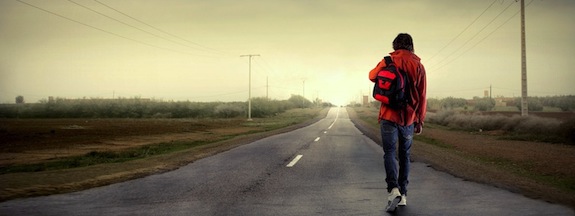
Of all of the teachings of Jesus the parable of the Good Samaritan is undoubtedly the most famous, known to Christians and non-Christians alike. His parable is, of course, about responsibility, about caring for others no matter whom or what they may be. On this 15th Sunday in Ordinary Time, however, I want to pay attention to some other responsibilities we have. Responsibility and caring for our neighbors is not enough even though the definition of “neighbor” is boundless. So what might be those other responsibilities?
Strange as it may seem at first glance we ought to take a look at how we can be responsible for ourselves. I say strange because we hear so much about our selfishness, our self-centeredness, and selfish consumerism that is gobbling up our world’s resources and damaging our environment. We must remember, however, that Jesus told us to love our neighbor as we love ourselves. So it is important to realize that how we treat ourselves influences how we love others. How can we respect others if we don’t respect ourselves? We cannot give what we don’t have. We must love our neighbors as we love ourselves.
What I want to point out is our responsibility to our inner selves, our responsibility to our souls. We need to pay attention to our spiritual selves, not just our material selves. So many men in their older years realize that they spent so much of their lives on the treadmill of a work existence, working, working, and working to have things for their families. But what sort of things should have been the question on their minds. In being obsessed with their work they missed their children’s youth and missed their wives’ closeness and companionship. Like the man in the ditch in today’s Gospel (Luke 10:25-37) account their wives and children were on the side of the road and passed by. This isn’t true just of men. Nowadays with women in the workforce they, too, may fail to give adequate attention to their families, wishing at the end of their lives that they had been more responsive to their husbands and children.
There is another responsibility to our inner selves, namely that of letting our feelings out, letting them be known, expressing our feelings. The phenomenon of living with repressed feelings allows those repressed feelings to be cancerous infections that cause physical and emotional illnesses, many of them resulting in hurtful behaviors to themselves and to others. I am not a social psychologist but I wonder if the widespread addiction to pornography can be traced to a lack of closeness to others, others whom, in our bottled up feelings, we pass by as we travel on the road through life.
Laughter and tears allow others to relate to us in healthy ways just as they allow us to reveal and share our hearts and souls with those around us. To put it simply, feelings allow us to get in touch with our real selves just as they allow others to get in touch with us. This suppression, by the way, is one of the fundamental causes of teenage distress and teenage anti-social behavior. Isn’t it true that teenagers often cry out: “You just don’t understand! You just don’t get it!”
Then there are friends and our responsibility to care for them. How many of those we call friends are at the side of the road as we pass them by in all of our busyness, obsessed as we are by all of our concerns? Notice in the parable that the Good Samaritan didn’t simply give the innkeeper money; he didn’t simply give a moment of caring and then move on. No. The Good Samaritan told the innkeeper he would be back and give further attention to the neglected man. Simply giving money is only superficial concern and gives me permission not to get involved.
Our time and our attention are more important that our money. Staying in touch with our friends is important not only to them but to us, to our sense of well-being. Friendships require time and effort. The same is true in our friendship with God. We can’t simply throw a few crumbs of our time and care for God and then move on.
What, then, do we give to God?
However busy and preoccupied we may be we need to put times of reflection into our lives. Those times of reflection and thought must be intentional and deliberate; they won’t just happen by default. Our ability to respond is learned and cultivated in our families, in our homes, in those with whom we interact daily. Our ability to respond in caring love isn’t just a gift that automatically drops down from the sky. It’s a gift God has planted deep within our hearts and souls, a gift that needs to be nurtured, a habitual state of mind that needs to be developed. Without times of prayer, without times of reflective awareness in God’s presence we will remain spiritual children, immature and self-centered.
Caring involves a change in our attitudes. We fear changes and are comfortable in living in our same old ways. We need a change in how we see things. Worries of what might happen beset us. Mark Twain once said, “I have known many troubles in my life, most of which never happened.” Fear can immobilize us. But while this is so we need to also realize that God is a God of surprises, surprises that can change us in good ways.
This means we must care for ourselves. Leaving ourselves at the side of the road has consequences, some of which can be serious. Out of love God has given us our selves. He wants to be loved by our selves as we have developed them. Who we are and what we have become is our gift of loving God in return.
So the big question is: What kind of persons are we not only in this life but when we return to meet God face to face? Leaving our selves by the side of the road is not giving God what He wants when we go back home to Him.
God has given us the gift of responsibility, the ability to respond. It’s not a burden, it’s a gift, one that can enrich us and helps us to be who God wants us to be, one that at the same time allows us to be who we really want to be.








